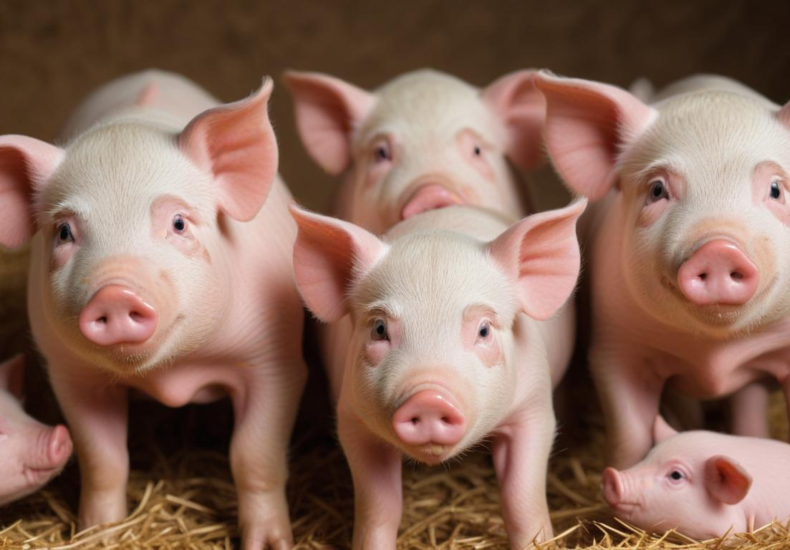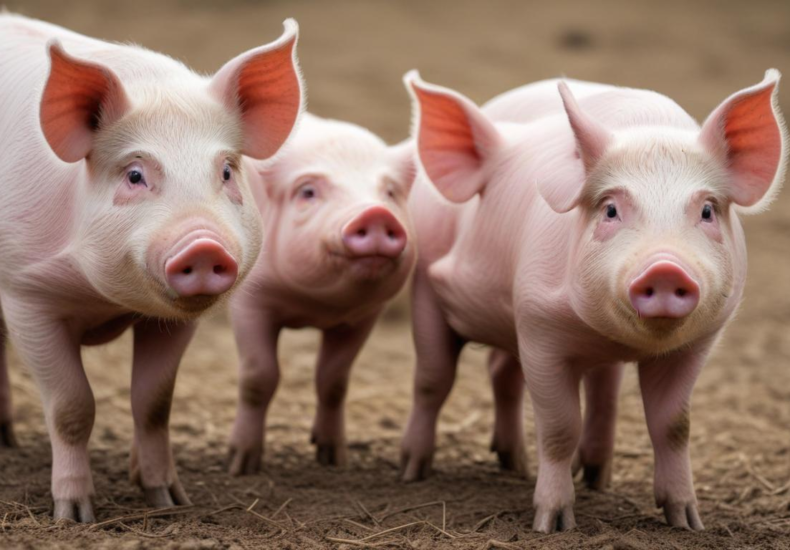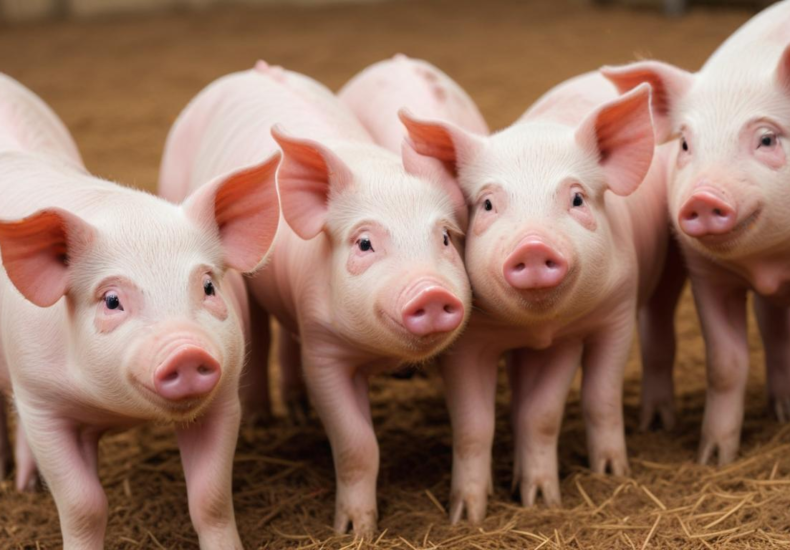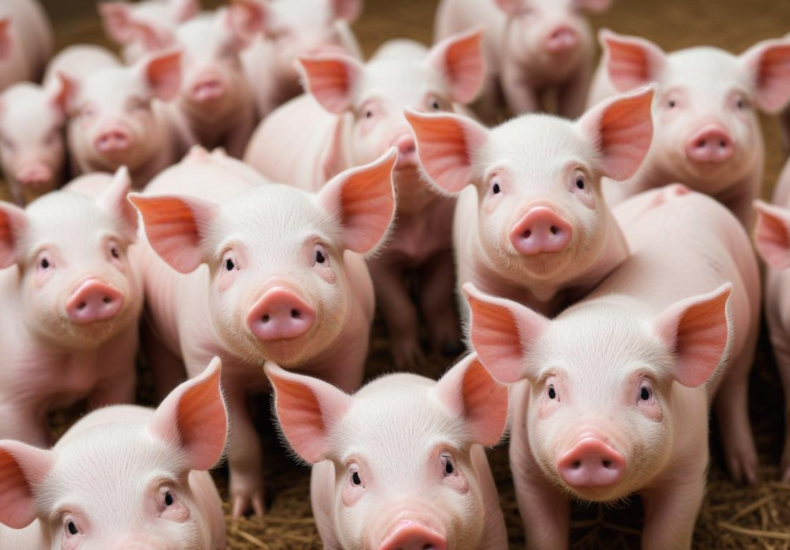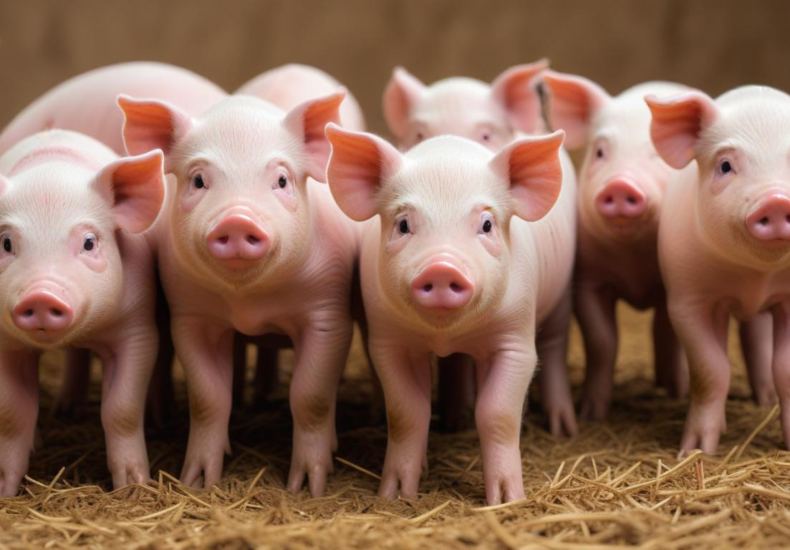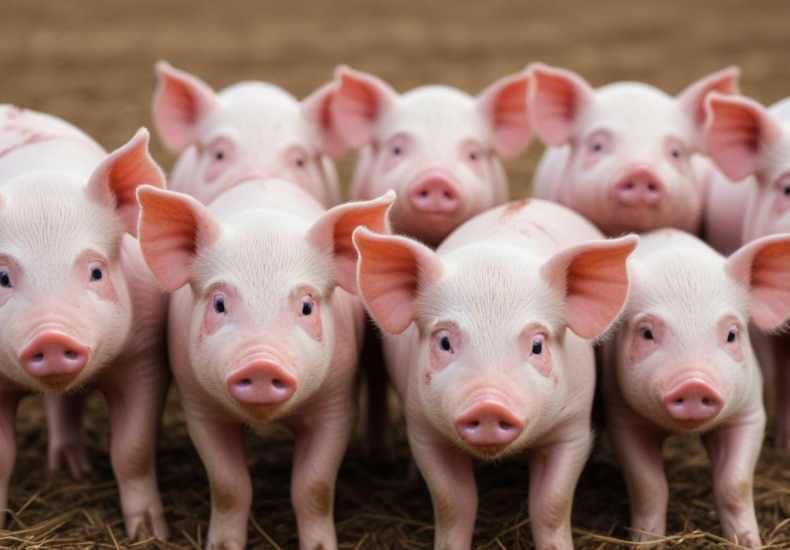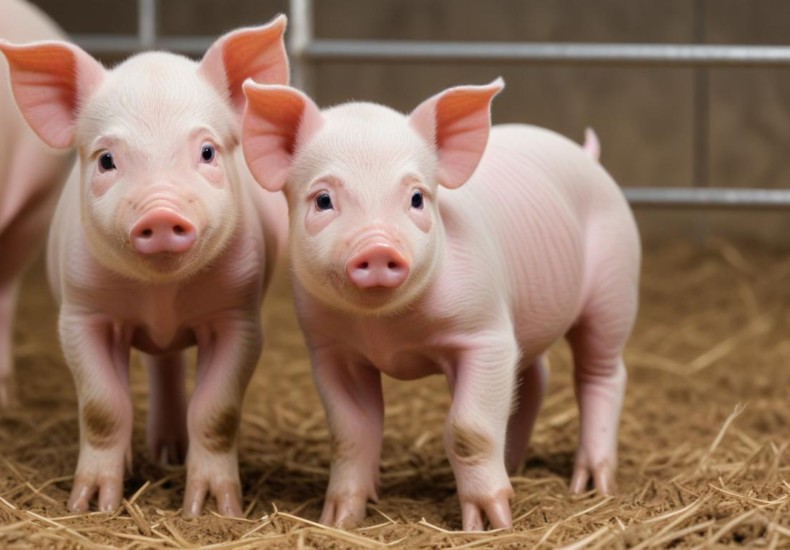Tag: breeding
pigs genetics and reproduction explained
Explore the intricate world of pig genetics, where a complex interplay of heredity shapes essential traits like growth, reproduction, and disease resistance. Advances in genomic selection and biotechnological innovations are revolutionizing breeding practices, aiming not only for higher productivity but also for sustainable animal welfare. Delve into how traditional techniques blend with cutting-edge strategies to meet increasing market demands while maintaining genetic diversity and ethical standards in modern agriculture.
the inheritance of maternal traits in pigs
Maternal traits in pigs encompass critical behaviors and characteristics that significantly impact reproductive success and offspring health. Key elements such as nursing behavior and protective instincts are vital for piglet survival and growth. Understanding the genetic and environmental factors influencing these traits offers opportunities for selective breeding and improved management practices. By optimizing conditions and employing genetic markers, producers can enhance maternal capabilities, ultimately leading to healthier herds and more efficient pig production systems. Delving into the complexities of these traits could unveil transformative strategies for the swine industry.
genetic differences between wild and domestic pigs
Genetic studies reveal stark contrasts between wild and domestic pigs, driven by evolutionary paths and human impact. Wild pigs boast a rich genetic diversity that enhances their adaptability and disease resistance, essential for survival in varied habitats. In contrast, selective breeding of domestic pigs prioritizes traits like growth and meat yield, often at the expense of their genetic variability. As researchers delve into these genetic differences, intriguing questions arise about the future of breeding practices, conservation efforts, and the potential for integrating the resilience of wild pigs back into domestic herds.
the role of SNPs in pig genetics
Single nucleotide polymorphisms (SNPs) are critical genetic markers that enhance the understanding of swine genetics. With their ability to influence phenotypic traits and impact breeding programs, SNPs offer insights into growth rates, disease resistance, and reproductive performance. As genomic technologies advance, SNPs will play a pivotal role in breeding strategies, optimizing selection processes, and improving the genetic diversity of pig populations. Discover how SNPs are shaping the future of swine production and influencing the health and productivity of pigs in this rapidly evolving field.
how gene editing is changing pig breeding
Gene editing technology is revolutionizing pig breeding, offering unprecedented speed and precision in altering genetic traits. Techniques such as CRISPR-Cas9 enable breeders to enhance growth rates, disease resistance, and overall animal welfare while reducing reliance on antibiotics. The economic benefits are significant, with potential increases in feed efficiency and profitability for producers. As this technology develops, it promises to reshape farming practices and address ethical concerns, sparking vital discussions on sustainability and animal health in the livestock industry. The future of agriculture may depend on these groundbreaking advancements.
why genetic diversity matters in pig breeding
Genetic diversity is essential for the health and viability of livestock, particularly in pig breeding. It enhances adaptability to environmental changes and improves resistance to diseases, fostering stronger and more resilient populations. However, challenges such as inbreeding, selective breeding practices, and shifting market demands threaten this diversity. Understanding the factors influencing genetic variability, including population size and breeding strategies, is crucial for developing effective solutions. By embracing proactive measures and collaborative efforts, the future of pig breeding can become more sustainable and adaptable. Discover how breed diversity can transform agricultural practices and livestock health.
genetic resistance to diseases in pigs
Genetic resistance in pigs is crucial for enhancing livestock health and productivity. Research reveals the role of specific genes, particularly within the Major Histocompatibility Complex, and their interactions with environmental factors in bolstering disease resistance. Advances in genomic technologies and breeding strategies are reshaping our understanding, promising to identify genetic variants that improve immunity and overall health. This multifaceted approach highlights the intricate relationship between genetics, immune function, and disease resilience in swine populations, paving the way for optimized breeding programs. Discover how these insights could transform pig farming practices.
genetic approaches to improving piglet survival
The genetic foundation of piglet survival is intricate, involving a variety of traits such as birth weight, morphological features, and health status at birth. Key factors influencing resilience and development include genetic diversity and advanced breeding techniques. Emerging technologies, including genomic selection and machine learning, hold promise for enhancing piglet vitality and adaptability. Collaborative efforts among geneticists and farmers aim to optimize breeding strategies, addressing both genetic potential and environmental challenges. As research progresses, innovative approaches are set to reshape pig production for better health and survival rates.
the impact of gene flow in pig populations
Gene flow is a vital mechanism that enhances genetic diversity in pig populations, significantly influencing their adaptability and resilience. The movement of genes through natural migration and breeding practices, such as artificial insemination, helps mitigate the risks of inbreeding and promotes overall health. Understanding these dynamics is essential for breeders and conservationists, as they play a crucial role in improving traits like disease resistance and productivity. This intricate relationship between gene flow and genetic health holds important implications for agricultural practices and the sustainability of pig populations.
how selective breeding improves pig genetics
Selective breeding is reshaping the future of pig farming by enhancing key genetic traits crucial for productivity and sustainability. By targeting qualities like growth rate, feed efficiency, and disease resistance, breeders are cultivating pigs that meet rising market demands in an environmentally conscious manner. Advances in genomic technologies and data analytics are revolutionizing how breeders make informed selections, paving the way for healthier livestock. As the industry evolves, the integration of sustainable practices becomes paramount, ensuring that the next generations of pigs contribute positively to both economic viability and ecological stewardship.
Archives
Calendar
| M | T | W | T | F | S | S |
|---|---|---|---|---|---|---|
| 1 | ||||||
| 2 | 3 | 4 | 5 | 6 | 7 | 8 |
| 9 | 10 | 11 | 12 | 13 | 14 | 15 |
| 16 | 17 | 18 | 19 | 20 | 21 | 22 |
| 23 | 24 | 25 | 26 | 27 | 28 | |

